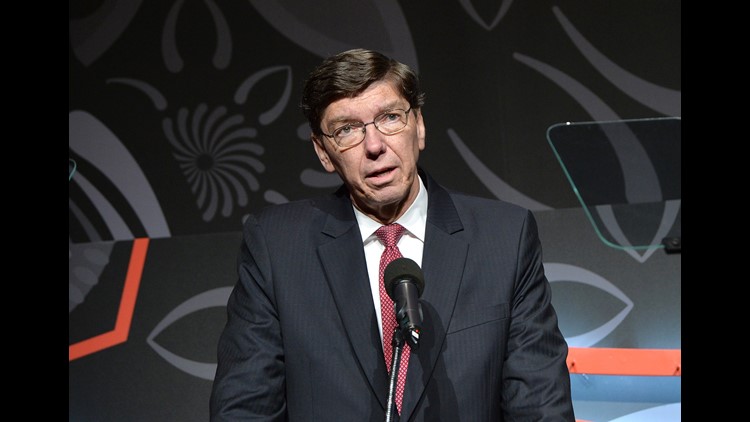Clayton Christensen, the prominent management thinker whose ideas on technology had a big influence on some of today’s largest companies, has died. He was 67.
“We are profoundly saddened to announce the passing of our friend and founder, Clayton Christensen. We are better people for knowing him,” the Christensen Institute, the Boston-based nonprofit think tank he founded, wrote on Twitter.
Christensen, a Harvard Business School professor, is best known for his book, “The Innovator’s Dilemma.” The book, published in 1997, is credited with pioneering the concept of disruption that much of Silicon Valley now treats as a mantra. The book has had an impact on some of the tech industry’s most prominent founders — it’s one of the top titles recommended by Amazon CEO Jeff Bezos, according to the website Book Authority, and it “deeply influenced” Steve Jobs, according to the late Apple cofounder’s biography.
Using examples ranging from transistor radios to personal computers, Christensen’s theory explained how large, established companies can be vulnerable to newer technologies that don’t immediately fit with the needs of mainstream customers but quickly go on to dominate a market.
“The first thing is to look at disruptive technology as a growth opportunity and not as a threat,” Christensen said in an interview in 2001. “In almost every case, a disruptive technology enables a larger population of less skilled people to do things that historically only an expert could do.”
Christensen died Thursday evening in Boston, Massachusetts, of complications from cancer treatment, his brother Carlton told the Deseret News.
Several tech industry figures paid tribute to Christensen on Friday.
Noted tech entrepreneur and investor Marc Andreessen called Christensen a “giant of enterprise” in a post on Twitter.
“Incredibly sad to see the passing of Clayton Christensen,” tweeted Aaron Levie, the CEO of content management startup Box.
“The Innovator’s Dilemma is singularly the best explanation of business, strategy, and markets out there,” Levie added. “Plus he was an incredibly amazing human.”



